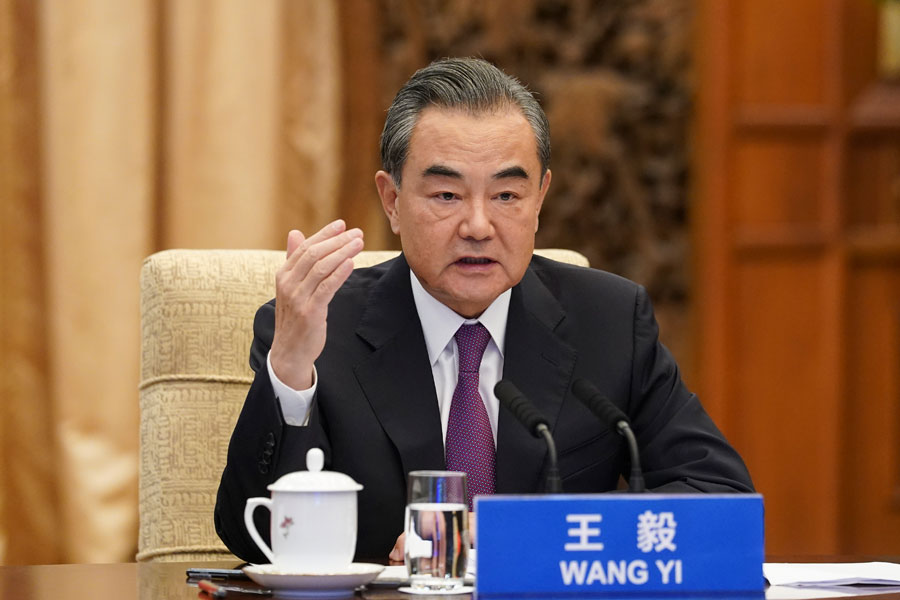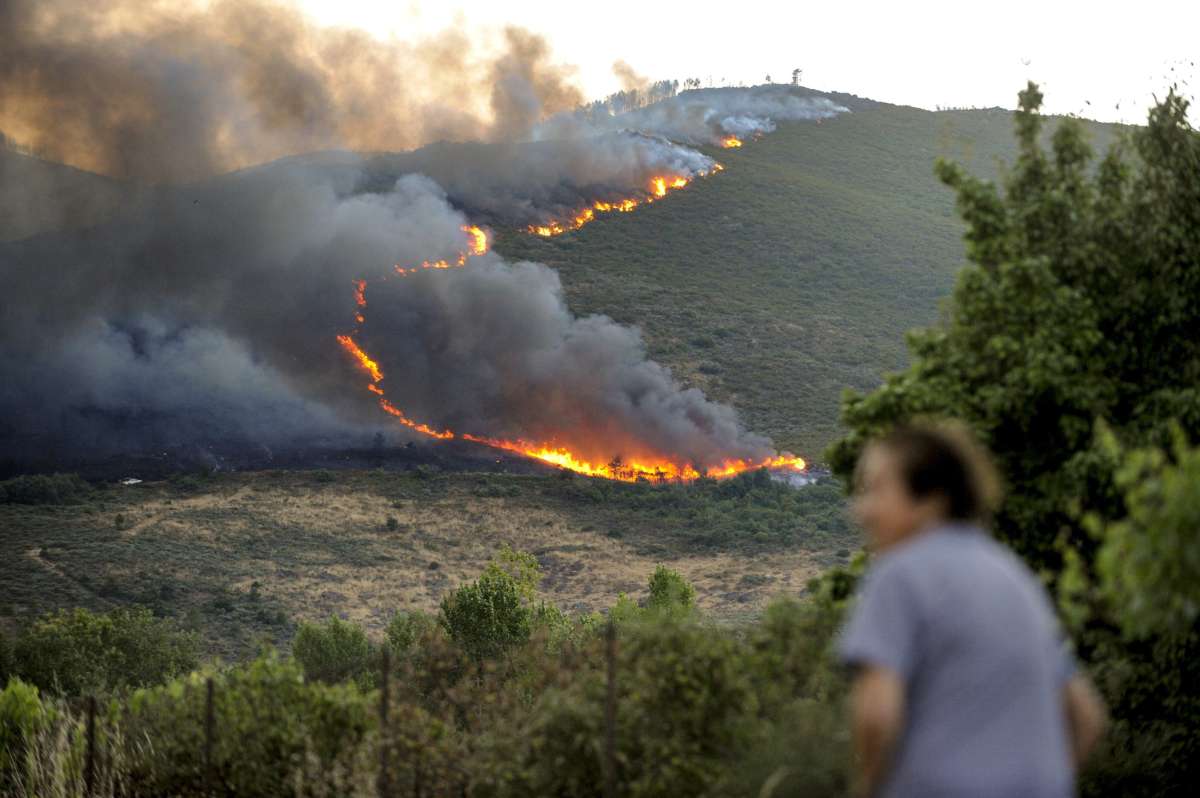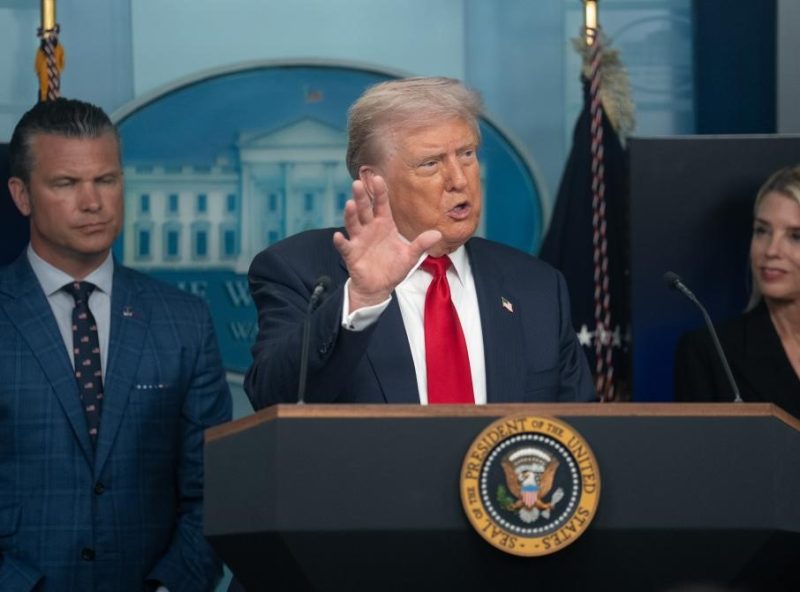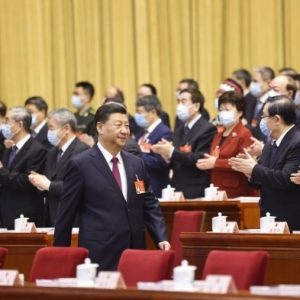The Chinese foreign minister’s visit comes just days before Australian Prime Minister Anthony Albanese is due to arrive in Papua New Guinea, once again highlighting a tussle for influence between China and US allies…reports Asian Lite News
Chinese Foreign Minister Wang Yi targeted Western powers in the AUKUS trilateral security partnership and accused them of provoking division and raising nuclear proliferation risks in the South Pacific, Nikkei Asia reported on Sunday.
AUKUS is a trilateral security partnership designed to create a stronger, more resilient trilateral submarine industrial base, supporting submarine production and maintenance in all three countries.
This comes as Chinese Foreign Minister Wang Yi lauded diplomatic achievements with Papua New Guinea on his visit to the country on Saturday, part of Beijing’s initiative to strengthen ties with the Pacific Island nations.
The Chinese foreign minister’s visit comes just days before Australian Prime Minister Anthony Albanese is due to arrive in Papua New Guinea, once again highlighting a tussle for influence between China and US allies.
Nikkei Asia reported, referencing announcements made by AUKUS nations that they are considering cooperating with Japan on sharing advanced technology earlier this month, Wang said, “Recent attempts to draw more countries to join in such an initiative of stoking bloc confrontation is completely inconsistent with the urgent needs of island countries.”
He slammed US and Australia’s relationship with Pacific island nations, saying, “The South Pacific region should not become an arena for great power competition. No country should regard island countries as its ‘backyard’ and should not engage in zero-sum games or exclusionary arrangements,” alluding to historical views that Australia considered the South Pacific to be its backyard.
Beijing and Port Moresby will also start free trade agreement negotiations as soon as possible and build police cooperation, according to a press release published by the Foreign Ministry after Wang’s meeting with Tkatchenko, Nikkei Asia reported.
In recent years, Beijing’s attempts to push for police and security agreements with Papua New Guinea had been unsuccessful, Nikkei Asia reported.
During a tour of Pacific island countries in June 2022, Wang proposed a wide-ranging regional security deal that would increase China’s involvement in police training, cybersecurity and sensitive marine mapping while gaining greater access to natural resources. The deal ultimately collapsed, with Papua New Guinea among those that rejected the proposal.
“There has been resentment over the Pacific agreement on security matters,” Papua New Guinea’s foreign affairs secretary Elias Wohengu told the Post Courier newspaper at the time. Wohengu indicated that Papua New Guinea was unlikely to sign a security deal, saying, “On the security status of Papua New Guinea, we will deal with it ourselves.”
Washington and Canberra has criticised China, which has made in the Solomon Islands.
“The increased policing presence in the Solomon Islands is concerning,” John Aquilino, commander of the U.S. Indo-Pacific Command, told reporters in Sydney earlier this month. “That’s the foot in the door.”
But while the big players jostle for influence, Papua New Guinea has stayed “pragmatic in its approach to global powers,” said Australian National University PhD candidate Michael Kabuni.
This has meant positioning Australia and the US as security partners while maintaining ties with China as an important economic partner, it reported.
Thousands protest against over-tourism in Canary Islands
Tens of thousands of protesters have taken to the streets of the Canary Islands in Spain to call for changes to the mass tourism model that they claim is overtaking the Atlantic archipelago, according to Al Jazeera.
The protests started at noon on Saturday (11:00 GMT), and an estimated 57,000 people participated, according to reports in Spanish media that cited the central government’s emissary in the islands.
The demonstrators waved flags, as they crowded the streets of the main towns on each of the seven islands in the archipelago, holding signs with messages like “A moratorium on tourism,” according to Al Jazeera.
“Canary Islands are not up for sale,” and “Respect my home,” the slogans read.
Approximately twenty social and environmental organisations called for the protests, claiming that the overcrowding of tourists feeds an unsustainable business model that hurts both the environment and local people.
They have suggested an eco-tax to safeguard the environment, a tourism moratorium, and a crackdown on the sale of houses to non-residents in order to pressure the authorities into limiting the number of tourists.
Spain’s Canary Islands, an archipelago of 2.2 million people, were visited by nearly 14 million foreign tourists in 2023, up 13 per cent from the previous year, Al Jazeera reported, citing the official data.
The authorities in the islands are concerned about the impact on locals.
Meanwhile, the President of the Canary Islands Fernando Clavijo stated on Friday that he was “proud” of the area’s status as a top travel destination in Spain, but he also noted that additional restrictions were required as the industry’s growth is on a boom. (ANI)
ALSO READ-China, Japan spar over former’s actions in Indo-Pacific













